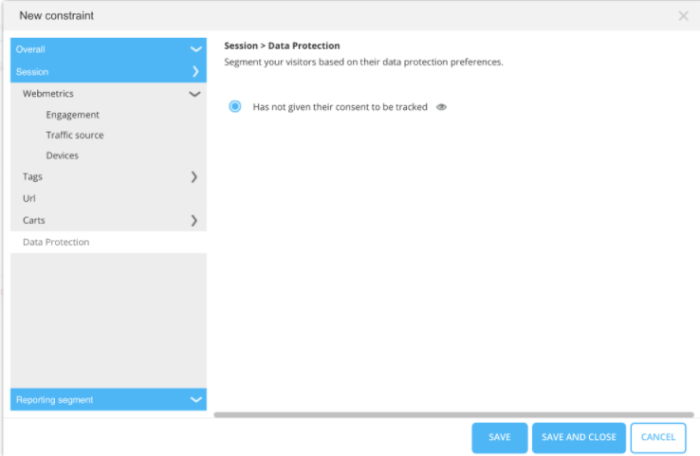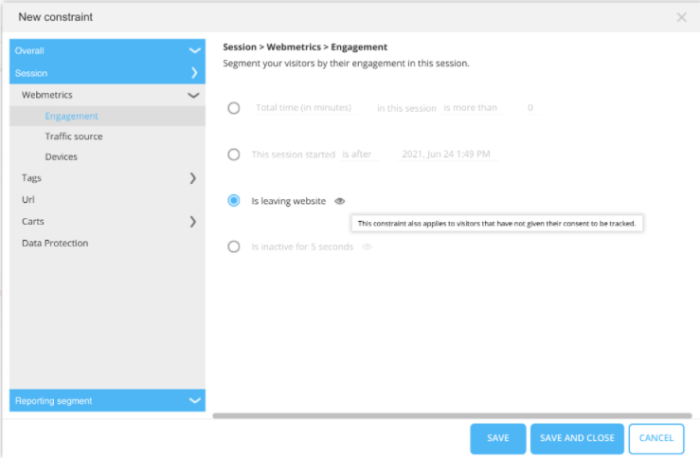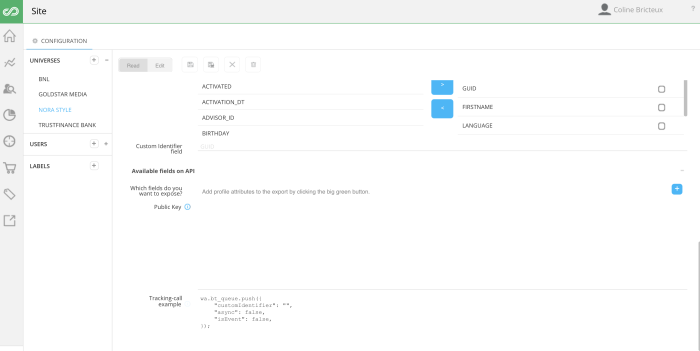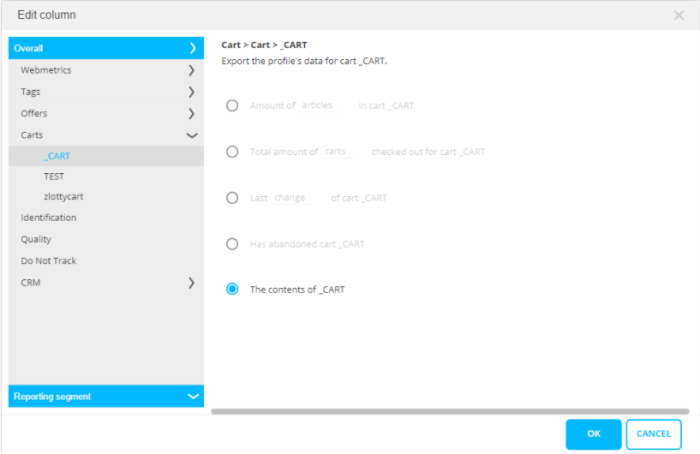| New features in Site July 2021 Watermelon |
| Target Visitors That Did Not Give Consent To Be Tracked | Cart Data Exposure in Tracking Call |
Target Visitors That Did Not Give Consent To Be Tracked 
Marketers want to be able to target all visitors on their website, even visitors who have refused cookies and/or tracking. Previously this was not possible because Site only allowed to target tracked visitors for whom a cookie is created with behavioral and personal data. Now, you can also target visitors who are not tracked.
For example, marketers want to be able to customize the web experience for those consentless visitors in the context of the current page. Or they want to display a popin encouraging them to accept cookies in order to benefit for a better website experience (like a cookie wall).
Remark: This new capability needs to be activated on request through your Selligent contact.
To support this new feature in Site:
A new constraint is added to the Session parameters under the new “Data Protection” section. This enables the marketer to target only visitors who do not want to be tracked.
Remarks:
When filtering the audience in the Segment Builder using this new constraint, it is not possible to save the selection as a segment. Segments based on this new constraint are not supported. An error message is displayed when trying to create such a segment.
This constraint can be used alone to only target this specific audience, or in combination with other constraints that also apply to consentless visitors (indicated with an “eye” icon). If you combine this constraint with other constraints that use tracked or personal data, nothing will be shown. For example, an offer that targets visitors that have not given consent to be tracked and are female will never be displayed because it mixes consentless with identified data.
Constraints applying to all visitors, including the consentless visitors, are now indicated with an "eye" icon, and a tooltip.
Following is a list of all constraints that also apply to consentless visitors:
- Session > Webmetrics > Engagement > is leaving website.
- Session > Webmetrics > Engagement > is inactive for X seconds.
- Session > Webmetrics > Traffic Source > came from Traffic Source X right now.
- Session > Webmetrics > Device Type > is using Device Type X right now.
- Session > Tags > Tag name > the current value contains XXX.
- Session > URL > URL contains XXX.
- Session > URL > URL holds a parameter X that contains Y.
- Session > URL > URL holds a numeric parameter X that is more than Y.
In the Offers overview, the marketer has a clear view on the Offers that are shown to all visitors. These offers have an “eye” icon (and tooltip) displayed in the overview.
Remarks:
* If a visitor is considered as “consentless” this information must be passed as a parameter in the tracking call of Site (via JavaScript isConsentless:true / isConsentless:false ).
* If the audience of the offer is based on a Reporting Segment, no "eye" icon is displayed, even if the offer is shown to all visitors.
* Real-Time view chapter and Offer report: “Non-tracked” visitors are considered as anonymous visitors (each action done by a consentless visitor will be considered as a new anonymous visitor).
* Visitor Insight chapter: “Non-tracked” visitors are not included in the reports (as they are based on Site profiles, and no profiles are created for consentless visitors).
* Cortex : Smart Content action is disabled for “non-tracked” visitors.
Cart Data Exposure in Tracking Call
New in the Watermelon release is the ability to access the latest content of the cart in an API call. To make this possible, we have added a new option in the Universe configuration.
In the section ‘Available fields for API’, a new option has been added to the Fields dialog that allows you to select the exposed field:
The Cart content is exposed as a JSON string with the following format:
[{"ID":"100","CONTENT":{"QUANTITY":1,"PRICE":10}},{"ID":"101","CONTENT":{"QUANTITY":2,"PRICE":20}}]





